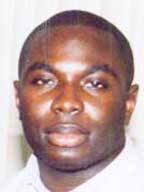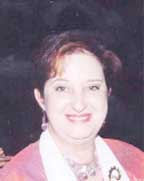-despite acrimonious row over McCoy
The National Assembly late Thursday approved the candidates to serve on the constitutional Rights of the Child Commission, despite a major dispute between the government and opposition Members of Parliament (MPs) on the inclusion of Kwame McCoy among the nominees for appointment.


The Assembly’s passage of a motion approving all 15 nominees clears the way for the establishment of the rights commission, nearly eight years after it was enshrined in the law as one of the products of the constitutional reform process.
The motion was, however, passed in the aftermath of a contentious debate, during which opposition MPs tried unsuccessfully to persuade the government to withdraw McCoy’s nomination, citing concerns about his political partisanship and what they claimed was the contentious nature of his character. But the governing PPP/C speakers defended the nomination while emphasising the need to move ahead with the establishment of the long-delayed commission. “I am not convinced that the arguments presented by the opposition, neither in committee or in this house, are based on fact, evidence and of such a nature to require such a deferral or reconsideration,” PPP/C MP Gail Teixeira, Chairperson of the Committee on Appointments, said, adding that she had never heard someone treated with such disdain during all her years in the Parliament. “When this House makes the whole discussion on the rights of the child centred around the one individual, what are we saying about the other members that we proposed?” she also noted.
McCoy, who is Office of the President (OP) press officer and a PPP/C Region Four RDC Councillor, was one of the nominees submitted by approved entities consulted by the Committee, in accordance with the Constitution. However, his nomination has been controversial, with the main opposition PNCR-1G issuing a strongly-worded statement on Wednesday urging the government to withdraw him as a nominee. A small group of PNCR-1G MPs and private citizens opposed to McCoy’s nomination staged a picket outside the Public Buildings before the start of the parliamentary sitting. They carried placards with slogans such as “God help our children,” “McCoy an insult to decent-minded Guyanese,” and “Shame on you Gail.”
Representatives from both the PNCR-1G and the AFC made it clear that while they supported the establishment of the commission and the other nominees, they were against McCoy’s inclusion. “We are confident that whoever else you get we will not have a problem with that person,” PNCR-1G MP Debra Backer said, adding, “To start off on this wrong-footed way would not auger well and so we urge the government to think about his nomination and let us have another nominee.” Backer is a member of the Committee on Appointments.
The Constitution sets out that the Commission should be independent and impartial in carrying out its activities, Backer noted, arguing that McCoy’s close association with the governing party raised doubts about his ability to be impartial. She also noted that in the Committee of Appointment’s letter requesting a nominee from the Human Services Ministry indicated that the candidate “must also have earned public respect and be of unquestionable honesty and integrity” and said concern that has been expressed about him so far indicates he does not meet the criteria.
Backer further made issue of the “confrontational nature” evident in his statements in the print and electronic media, arguing that it would not enhance the work of the Commission. She characterised him as a “confrontational,” “dogmatic” and “arrogant” character, which prompted Speaker of the House Ralph Ramkarran to request that she use a more moderate tone.
(The questions raised about McCoy’s character led to the Speaker’s intervention on two occasions, as he reiterated his discomfort with attacks on someone unable to respond to the allegations being made against him. In this vein, he mentioned considering inviting McCoy to submit a reply in writing, as is done in the UK.)
PNCR-1G MP Amna Ally and AFC MP David Patterson also raised concerns about McCoy’s nomination.
Health Minister Dr. Leslie Ramsammy, who is also a member of the Committee on Appointments, urged the Assembly to focus on the opportunity to set up the long-delayed commission. “What is important, the incentive at this sitting, is to proceed to establish the Commission on the Rights of the Child,” he said, saying it is more important to the country at the moment. Further, since it will be possible to review the membership to the body, he said, there was no reason to delay.
Teixeira, meanwhile, challenged the notion that McCoy’s political activism disqualified his nomination. She said while the Constitution speaks to the impartiality of the commission in the carrying out of its activities and not to the individual members. “What is so interesting about this debate is that a young man, who is a professional, who happens to have a political position, who happens to work with the government of the day, who happens to like the government of this day is found to be unacceptable, controversial and everything else,” she observed. Teixeira added while McCoy was being castigated for “being controversial,” it was part of being in the public life and what is more, essential to change. “It is that that drives change… it is that that drives science and discovery and knowledge and everything else,” she said.
The other nominees to the Commission are Kaloutie Nauth, Yvonne Fox, Sarojanie Rambarran, Aleema Nasir, Colleen Anthony, Marissa Massiah, Michelle Kalamadeen, Suelle Findlay-Williams, Sandra Hooper, Rosemary Benjamin-Noble, Vidyaratha Kissoon, Hyacinth Massay, Banmattie Ram and Shirley Ferguson.
The Rights of the Child Commission is one of four rights commissions recommended during the constitutional reform process to strengthen social justice and the rule of law. The other commissions are the Woman and Gender Equality Commission, the Human Rights Commission and the Indigenous Peoples Commission.
Among the functions of the commission are to: ensure the rights and interests of children are taken into account at all levels of government, other public bodies and private organisations; ensure that children have effective means of redress if their rights are being breached; monitor and make recommendations on policies, procedures and practices of organisations, bodies and institutions to promote the rights of the child.
